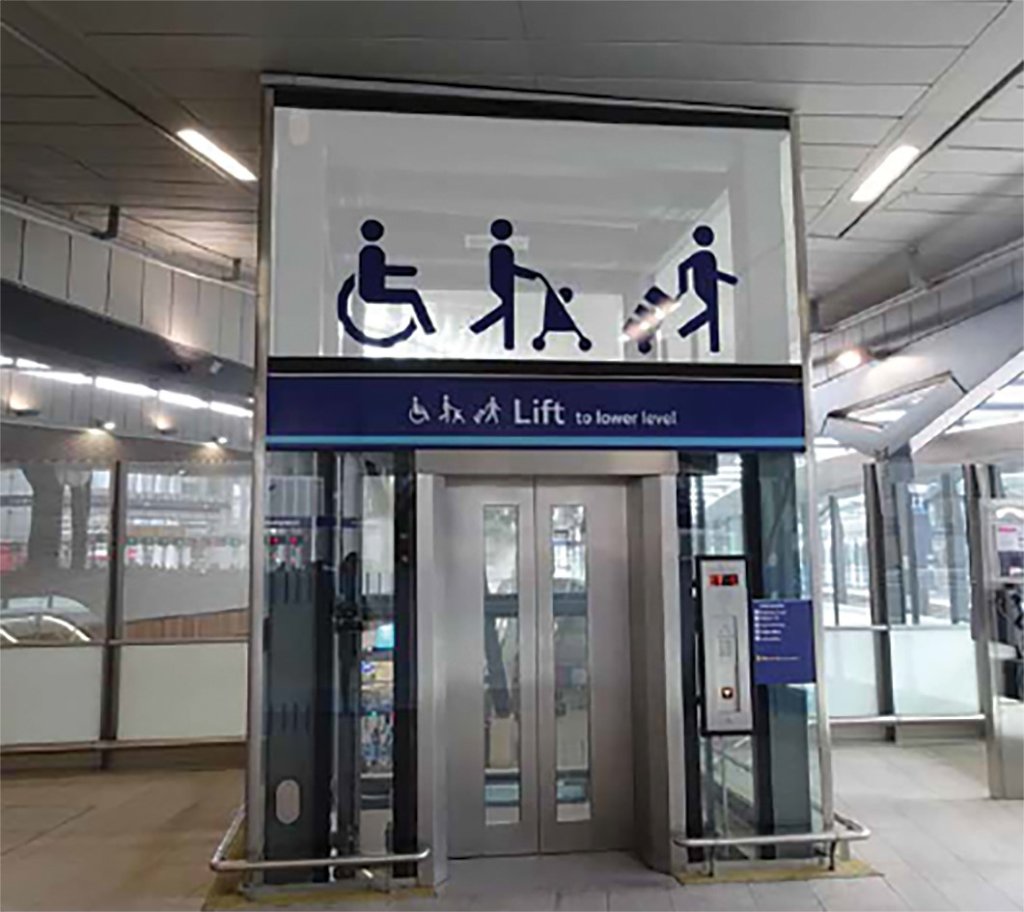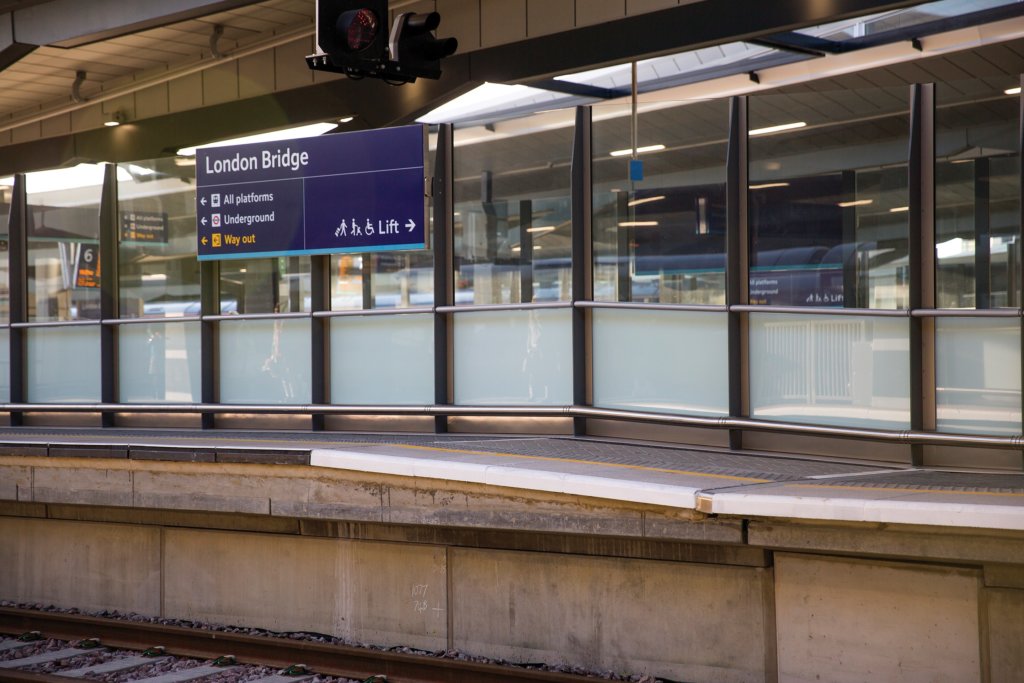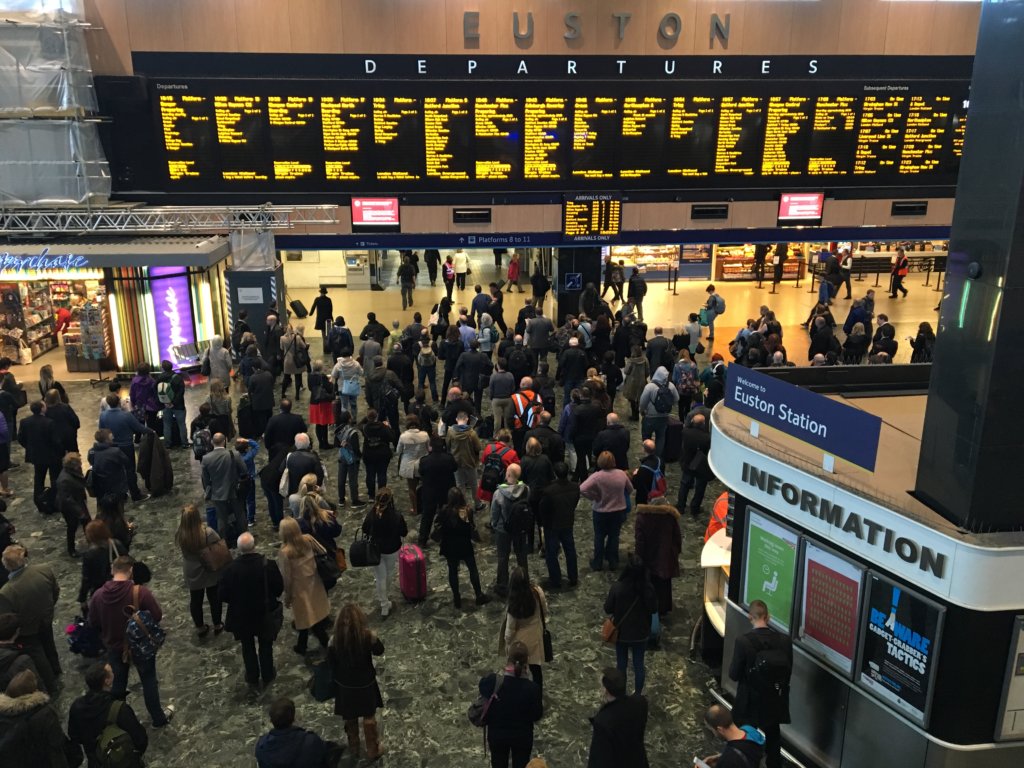This Disabled Access Day (16 March) we look at how the rail industry is making the railway more accessible to all passengers.
The annual event encourages disabled people to try something new and help remove the anxiety and fear that new things – such as using public transport – can bring.
At Network Rail, we’ve made significant progress at Britain’s biggest railway stations and are preparing further improvements over the next five years.
Our Access for All Programme provides an obstacle-free, accessible route to and between platforms. The government’s Department for Transport, which funds much of Network Rail’s activities, has secured further funding of up to £300m to extend the programme between April 2019 and March 2024.

Inclusive design
More inclusive designs at stations place passengers’ needs at the heart and benefit people with a broad range of access requirements, including disabled people, some older people and those travelling with children or heavy luggage.
When inclusive design is achieved in our spaces and places – such as stations and footbridges – it means everyone can benefit from our full range of services and opportunities. It:
- ensures everyone can use the railway safely, easily and with dignity
- acknowledges diversity and difference, and is responsive to people’s needs
- offers choice where a single design solution may not work for everyone
- provides for flexibility in use, offering more than one solution to help balance everyone’s needs; and
- provides buildings and environments that are convenient and enjoyable for everyone.
Service success at London Euston

London Euston – one of Network Rail’s 20 managed stations – has celebrated record service success in recent months.

The mobility assistance team helped more than 3,000 passengers through the station in just one week during the Christmas period, after the number of passengers requiring such help surged.
Michael John Priolet, passenger assistance manager at London Euston, said: “On our busiest day over the Christmas period, we carried out 814 mobility assistance movements for our passengers – receiving 15 customer compliments.
“We’ve made several improvements to our service following passenger feedback, including a new coordinator role, which helped us to meet the increased demand. The coordinator is responsible for ensuring all our inbound passengers are met on time – one of the issues raised by passengers.”
This has allowed the team to focus on outbound passengers, possibly arriving at Euston for the first time, and provide a more attentive welcome. Staff also perform specific duties, making the departure operation leaner.
Without our service, some passengers wouldn’t be able to travel so safely on the network. That’s why we’re striving to continue to improve our service and accessibility around our stations.
Michael John Priolet, passenger assistance manager at London Euston
Step-free
Earlier this year, access improvements were completed at Kilmarnock station on the Scotland route. The £2.7m investment provided step free access to four platforms and from the station underpass through the installation of lifts.
This month, work will begin to install new lifts, ramps and a footbridge at Stechford station on the London North Western (LNW) route to provide step-free access across all platforms for the first time.
Tring station in Hertfordshire, on the LNW route, has also begun a £4.5m accessibility improvement project. This will install step-free access at the station’s five platforms.
Installing an accessible footbridge at Northumberland Park railway station
These are some of the latest in a string of rail industry moves to improve the travel experience for disabled passengers. In September last year, the industry said it would press ahead with a smartphone app to make it easier for passengers to book assistance when they travel. The Passenger Assist App is aimed at anyone who needs help with their journey; including people with disabilities, parents with prams and elderly people.